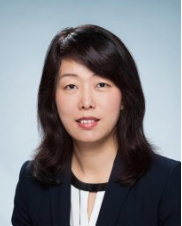Structural and Mechanical Inhomogeneity in Arterial ECM: Implications for Physiology and Disease
Speaker: Dr. Yanhang (Katherine) Zhang, Boston University
Date: Nov 13, 2020; Time: 2:30PM Location: Webex
 Webex Link:http://s.uconn.edu/meseminarf90
Webex Link:http://s.uconn.edu/meseminarf90
Abstract: The extracellular matrix (ECM) of an artery endows the tissue its load bearing and damage resistance capacities. This talk will focus on the complex interplay between the multiscale ECM structural inhomogeneity and mechanics of large elastic arteries. Our recent studies integrating multiphoton imaging and quantification, biomechanical characterization, and computational modelling showed that ECM structural inhomogeneity exists at multiple structural levels of the arterial wall. At the intralemellar level, varying fiber orientation distribution and undulation contributes to local ECM mechanical properties. At the interlamellar level, transmural variation in in-plane fiber orientation distribution determines the anisotropic mechanical behavior of the elastin network. Furthermore, the waviness gradient among the elastic lamellar layers plays an important role in maintaining tissue homeostasis. Finally, structural inhomogeneity in transmural interlamellar fibers and the development and propagation of aortic dissection will be discussed.
Biographical Sketch: Dr. Katherine Zhang is a Professor at Boston University’s Departments of Mechanical and Biomedical Engineering, and Division of Materials Science and Engineering, and the Associate Chair for the Graduate Program in the Department of Mechanical Engineering. She received her B.S. degree in Engineering Mechanics from Tsinghua University; and her M.S. and Ph.D. degrees in Mechanical Engineering from University of Colorado at Boulder, where she was also a postdoc for two years. In 2006, Dr. Zhang became an Assistant Professor at Boston University and established the Multi-Scale Tissue Biomechanics Laboratory. Her research focuses on vascular biomechanics and the multi-scale mechanics and mechanobiology of the extracellular matrix. Dr. Zhang was awarded the Clare Boothe Luce Assistant Professorship in 2006, the Young Faculty Award from DARPA in 2007, and the Faculty Early Career Development (CAREER) Award from the NSF in 2010. Dr. Zhang was elected a Fellow of the American Society of Mechanical Engineers (ASME) in 2018.